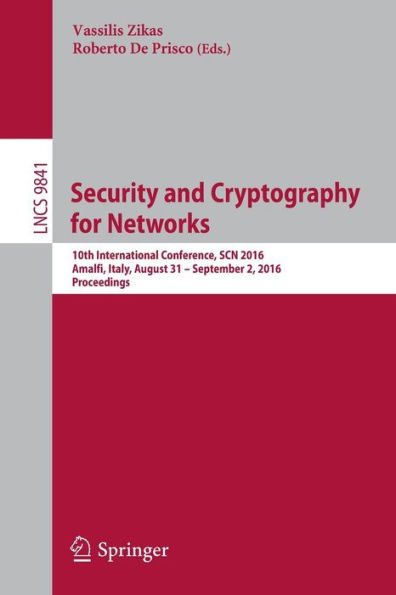Home
Rough Sets, Fuzzy Sets, Data Mining, and Granular Computing: 10th International Conference, RSFDGrC 2005, Regina, Canada, August 31 - September 2, 2005, Proceedings, Part II / Edition 1
Barnes and Noble
Rough Sets, Fuzzy Sets, Data Mining, and Granular Computing: 10th International Conference, RSFDGrC 2005, Regina, Canada, August 31 - September 2, 2005, Proceedings, Part II / Edition 1
Current price: $109.99


Barnes and Noble
Rough Sets, Fuzzy Sets, Data Mining, and Granular Computing: 10th International Conference, RSFDGrC 2005, Regina, Canada, August 31 - September 2, 2005, Proceedings, Part II / Edition 1
Current price: $109.99
Size: OS
Loading Inventory...
*Product information may vary - to confirm product availability, pricing, shipping and return information please contact Barnes and Noble
This volume contains the papers selected for presentation at the 10th Int- national Conference on Rough Sets, Fuzzy Sets, Data Mining, and Granular Computing, RSFDGrC 2005, organized at the University of Regina, August 31st–September 3rd, 2005. This conference followed in the footsteps of inter- tional events devoted to the subject of rough sets, held so far in Canada, China, Japan,Poland,Sweden, and the USA. RSFDGrC achievedthe status of biennial international conference, starting from 2003 in Chongqing, China. The theory of rough sets, proposed by Zdzis law Pawlak in 1982, is a model of approximate reasoning. The main idea is based on indiscernibility relations that describe indistinguishability of objects. Concepts are represented by - proximations. In applications, rough set methodology focuses on approximate representation of knowledge derivable from data. It leads to significant results in many areas such as finance, industry, multimedia, and medicine. The RSFDGrC conferences put an emphasis on connections between rough sets and fuzzy sets, granularcomputing, and knowledge discoveryand data m- ing, both at the level of theoretical foundations and real-life applications. In the case of this event, additional effort was made to establish a linkage towards a broader range of applications. We achieved it by including in the conference program the workshops on bioinformatics, security engineering, and embedded systems, as well as tutorials and sessions related to other application areas.









